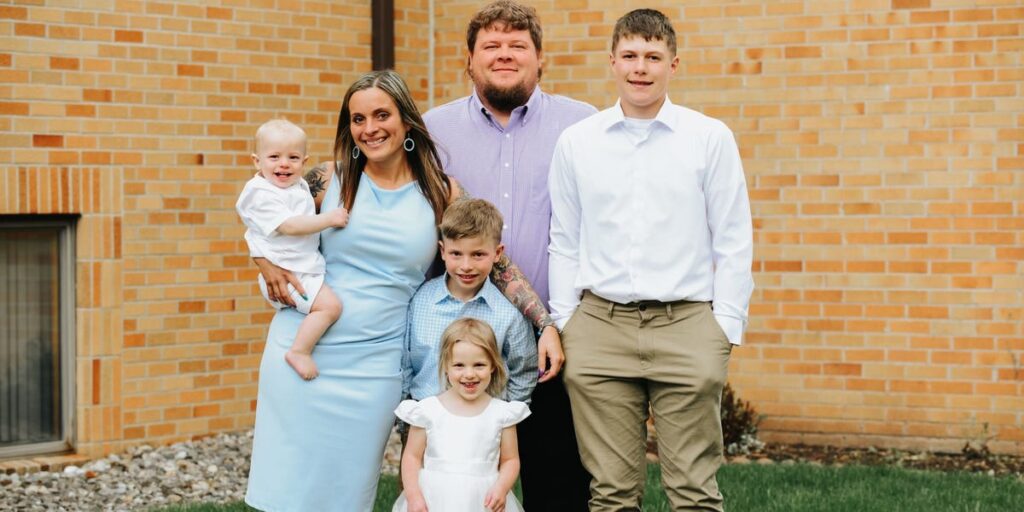I met my now-husband and father of my children when I was only 19, still a sophomore in college, living with my parents. He was 29, living in a home he owned, operating his own business, and was already a father to a 3-year-old son.
In the greenest part of our relationship, our age difference was most evident in the way our minds worked. Mine was still learning how to be an adult, while he had a firm grasp on who he was. He was actively raising a child, and I had just been one myself a few years prior.
Still, I fell right into loving and parenting his son with him. Three years later, we began having our own children together and ventured off onto an entirely different learning curve.
At first, we had to navigate boundaries
When all we had was our oldest (my bonus son, as I call him), I set boundaries for myself. I let my husband handle most of the discipline and never overrode his decisions, even if I had a different opinion. I respected that he was his biological parent (and he had a biological mother in the picture too) and I was not.
When I gave birth to my first biological child, I remember grappling with the feeling of, “This is fully my child. He isn’t any more mine or his. He is as much my son as he is my husband’s.”
I also felt inferior in some ways, because I knew my husband had already raised a baby successfully, and I was just trying to figure out what I was doing. Our son was colicky as a newborn, and my husband was so good at getting him to stop crying. You know when you’re holding someone else’s baby and they start to cry, so you hand them back to their parents? I caught myself doing that a few times with my own baby and husband. That made me feel like I wasn’t capable of handling my son on my own.
Our perspectives shifted and we adjusted timelines
We welcomed a third child into our family — a daughter — when our oldest was 10 and our other son was 4. I liked the way our kids were spaced out. I felt like I had time to enjoy each one of them in their youngest years.
Around the time we had our daughter, though, my husband started thinking more about his age, and it became a factor in how we moved forward with our family.
“I don’t want to be at retirement age by the time our youngest graduates high school,” he’d say. And while plenty of people continue having children well into their 40s, that wasn’t something my husband wanted to do, and I respected that.
This eventually compelled me to wind my own biological clock up to tick at a faster pace. I wanted one more baby, and so did he, but we had to close the gap between kids three and four — so we had our last son a month before our daughter turned 2.
Time has taught us a lot
Now, over a decade into parenting together, the age gap that once felt like a noticeable lapse in experience just feels like balance.
There are moments where our perspectives still differ — when I want to give the kids the benefit of the doubt while he wants to follow through with discipline to teach them lessons — but our differences are no longer a source of friction. They’re part of what makes our parenting dynamic work.
Our children get the best of both of us, and I’ve come to believe the space between our ages has given us more to offer, not less.
Read the full article here


